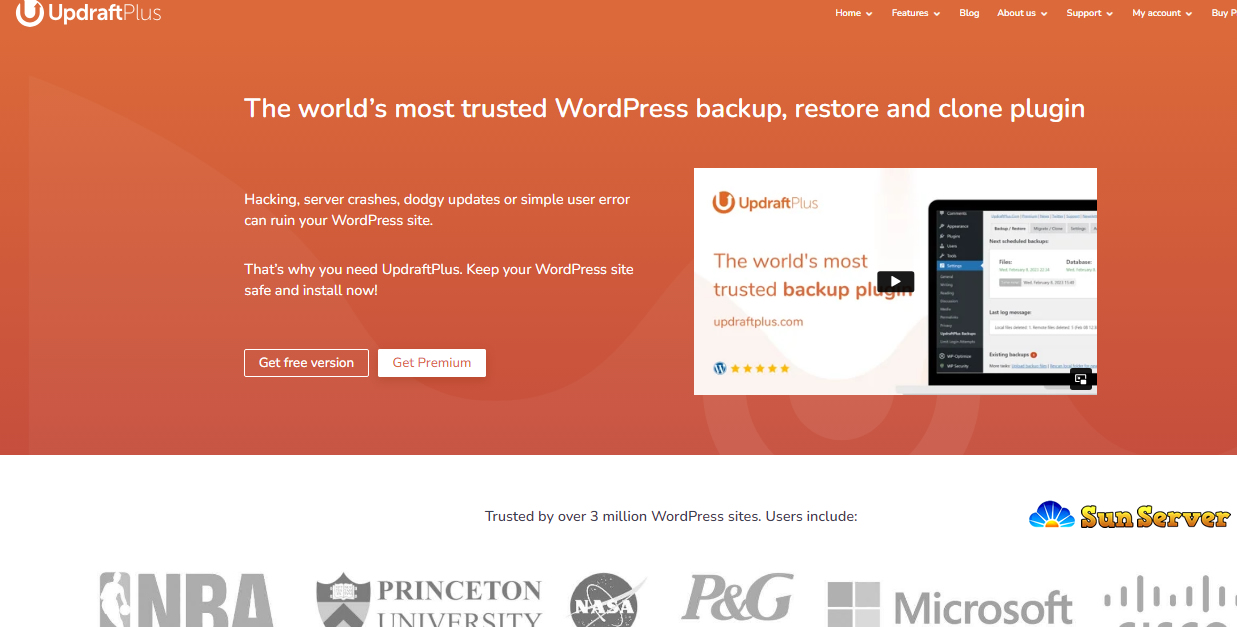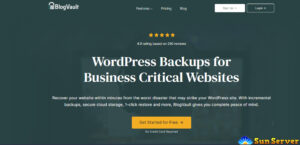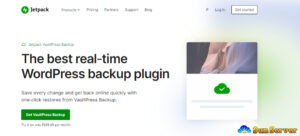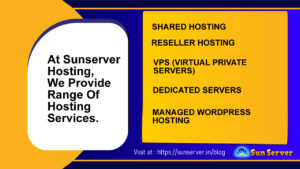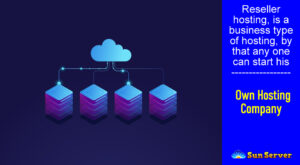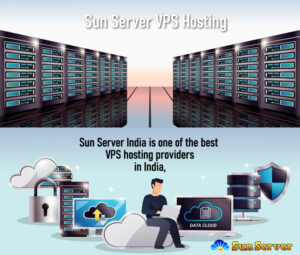Introduction:
Are you running a small business or thinking of starting one? Whether you’re just getting started or already on your way to growth and success, one of the crucial decisions you’ll have to make is choosing the right hosting for your website. In this blog, we’re going to explore two popular hosting options: shared hosting and VPS hosting. We’ll break down the differences and help you decide which is suitable for your growing business.
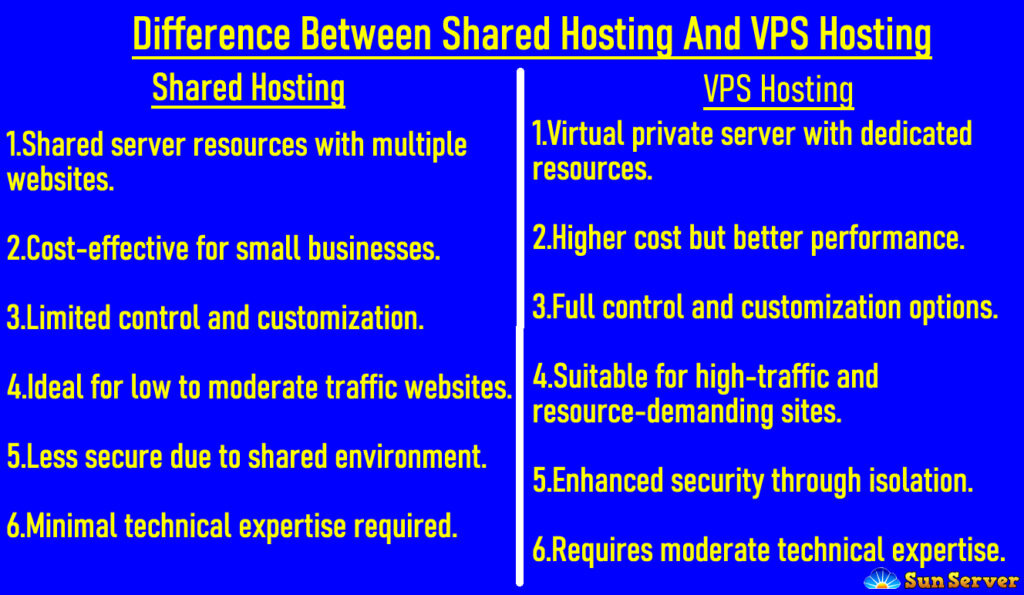
Understanding Shared Hosting:
Shared hosting is like renting an apartment in a large building where you share resources with other tenants. In the web hosting world, you’ll be sharing server resources with other websites hosted on the same server. Here are some key features of shared hosting:
- Affordability: Shared hosting is budget-friendly, making it an excellent choice for startups or small businesses. It’s like a communal potluck where everyone pitches in a little, keeping costs low.
- Ease of Use: You don’t need to be a tech genius to manage a shared hosting account. The hosting provider takes care of server maintenance and security, allowing you to focus on your business.
- Limited Resources: Since you’re sharing server resources with others, there is a cap on how much CPU, RAM, and bandwidth you can use. This might not be ideal for high-traffic or resource-intensive websites.
Pros of Shared Hosting
Cost-Efficiency: Shared hosting is a cost-effective solution for businesses on a tight budget. It’s perfect for those just starting their online journey.
Ease of Maintenance: Hosting providers handle server maintenance, updates, and security, saving you time and effort.
Scalability: Many providers offer easy scalability options, so you can upgrade your hosting plan as your business grows.
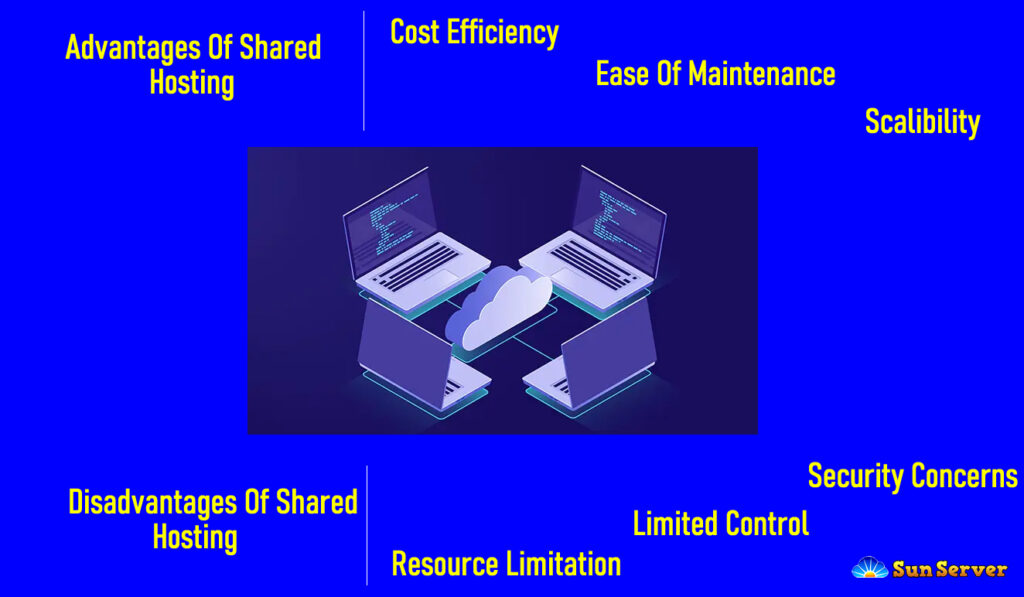
Cons of Shared Hosting
Resource Limitations: Your website’s performance can be affected if other websites on the same server experience a surge in traffic or resource usage.
Limited Control: With shared hosting, you have limited control over server configurations and software installations.
Security Concerns: Security can be a concern, as a vulnerability in one site could potentially affect others on the same server.
When Is Shared Hosting Suitable for a Growing Business?
Shared hosting is a great choice when you’re just starting, but it might not be ideal for a rapidly growing business. However, if your business is still in its infancy and has minimal traffic, shared hosting can be a cost-effective and hassle-free solution. As your business expands and your website experiences more traffic, it’s time to consider an upgrade to VPS hosting.
Demystifying VPS Hosting
VPS (Virtual Private Server) hosting takes your web hosting experience to the next level. It’s like moving from a shared apartment to your private condo. Here’s what you need to know:
- Isolation: In a VPS environment, you have your virtual server with dedicated resources. You won’t have to worry about noisy neighbors affecting your website’s performance.
- Control: You have more control over your server configurations, software installations, and security settings. It’s like having the keys to your own digital kingdom.
- Scalability: VPS hosting is highly scalable. As your business grows, you can easily allocate more resources to your virtual server.
Pros of VPS Hosting
Enhanced Performance: With dedicated resources, your website’s performance is more stable and reliable.
Customization: You can configure your VPS to suit your specific needs, allowing you to run custom software and applications.
Improved Security: Your virtual server is isolated from others, reducing the risk of security vulnerabilities from neighboring websites.
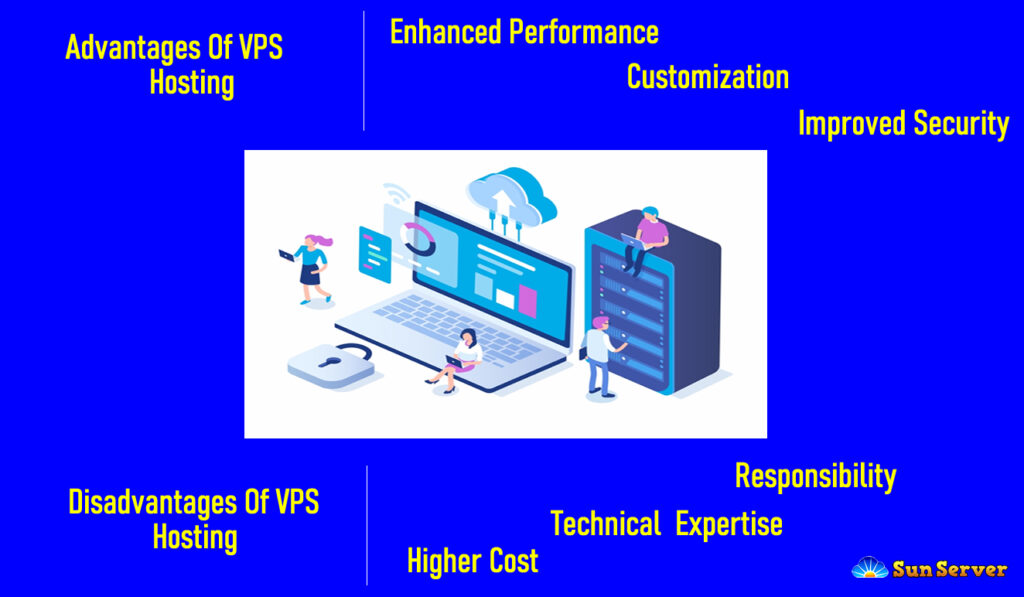
Cons of VPS Hosting
Higher Cost: VPS hosting is more expensive than shared hosting, which might not be suitable for businesses with limited budgets.
Technical Expertise: You may need some technical knowledge to manage and optimize your VPS effectively.
Responsibility: With greater control comes greater responsibility. You’re in charge of server maintenance, updates, and security.
When Is VPS Hosting Suitable for a Growing Business?
VPS hosting is the perfect choice when your business starts to outgrow the constraints of shared hosting. If you’re experiencing increased website traffic, want more control over your server, and need to run custom software, it’s time to consider VPS hosting. The scalability and improved performance will support your growing business needs.
Making the Right Choice for Your Growing Business
The decision between shared hosting and VPS hosting depends on various factors. Here are some guidelines to help you make the right choice for your growing business:
- Assess Your Website’s Needs: Consider the current and future needs of your website. How much traffic do you expect? What software and applications will you need? These factors will determine the hosting plan that suits you best.
- Budget Constraints: Your budget plays a significant role in your decision. Shared hosting is more cost-effective, while VPS hosting offers better performance but at a higher cost. Evaluate what you can afford.
- Technical Proficiency: Do you or your team have the technical skills required to manage a VPS effectively? If not, shared hosting might be a more manageable choice.
- Scalability: Think about your business growth. If you anticipate rapid expansion, a VPS can easily adapt to your increasing resource demands.
- Security Concerns: If your website deals with sensitive data or customer information, the enhanced security of a VPS might be a priority.
- Customization Needs: Consider whether you require specific server configurations and custom software installations. VPS hosting allows more flexibility in this regard.
Making the Transition
If you’re already using shared hosting and believe your business is ready to make the leap to VPS, don’t worry – the transition can be relatively smooth. Many hosting providers offer migration services to assist you in moving your website and data to the new hosting environment. Additionally, you can gradually scale your VPS resources to accommodate your growing needs.
Final Thoughts
Choosing the right hosting solution for your growing business is a crucial step on your online journey. Shared hosting is an excellent starting point for small businesses, while VPS hosting offers enhanced performance and control as your website expands. Consider your budget, technical expertise, and scalability needs to make the right decision. Remember, your hosting choice can impact your website’s performance, security, and, ultimately, your business’s success. So, make it wisely and start your journey towards online growth today!



